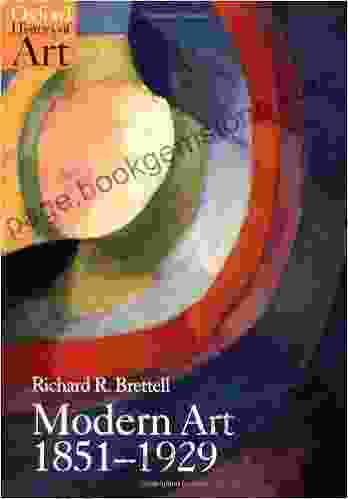Capitalism and Representation: The Oxford History of Art

Art has long been a reflection of the society in which it is created. The works of art that we see today can tell us a great deal about the values, beliefs, and aspirations of the people who created them. In recent years, there has been a growing interest in the relationship between capitalism and art. This article will explore the ways in which capitalism has influenced the production, distribution, and consumption of art.
The Rise of Capitalism
The rise of capitalism in the late Middle Ages and early Renaissance led to a number of changes in the way that art was produced and consumed. Prior to this time, art was primarily commissioned by the Church and the aristocracy. However, as the middle class grew in wealth and power, they began to demand a greater share of the art market. This led to the development of new genres of art, such as portraiture and landscape painting, that appealed to the tastes of the middle class.
4.2 out of 5
| Language | : | English |
| File size | : | 8166 KB |
| Text-to-Speech | : | Enabled |
| Screen Reader | : | Supported |
| Print length | : | 272 pages |
| Lending | : | Enabled |
At the same time, the rise of capitalism also led to the development of new technologies that made it possible to produce art more efficiently and cheaply. The invention of the printing press, for example, made it possible to mass-produce prints and other works of art. This led to a decline in the price of art and made it more accessible to the general public.
The Commodification of Art
One of the most significant impacts of capitalism on art has been the commodification of art. In a capitalist society, art is treated as a commodity that can be bought and sold for profit. This has led to a number of changes in the way that art is produced and consumed.
First, the commodification of art has led to the development of a market for art. This market is driven by the demand for art from collectors, investors, and other buyers. In order to meet this demand, artists must produce art that is appealing to the tastes of the market. This can lead to a narrowing of the range of artistic expression and a focus on producing art that is safe and predictable.
Second, the commodification of art has led to a separation between the artist and the audience. In the past, artists were often closely connected to their communities and their work reflected the values and beliefs of those communities. However, in a capitalist society, artists are often isolated from their audiences and their work is more likely to reflect the values of the market than the values of the people who create it.
The Critique of Capitalism
The commodification of art has been a major source of criticism from both artists and critics. Many artists argue that the market for art has corrupted the creative process and led to a decline in the quality of art. Critics also argue that the commodification of art has made art less accessible to the general public and that it has contributed to the growing inequality in our society.
In recent years, there have been a number of movements that have sought to challenge the commodification of art. These movements include the Dada movement, the Surrealist movement, and the Pop Art movement. These movements have all sought to break down the barriers between art and life and to create art that is accessible to everyone.
The Future of Art in a Capitalist Society
The future of art in a capitalist society is uncertain. The commodification of art has had a significant impact on the way that art is produced and consumed, and it is likely that this impact will continue to be felt in the years to come. However, there is also a growing movement of artists and critics who are challenging the commodification of art and who are seeking to create a more just and equitable future for art.
Capitalism has had a profound impact on the production, distribution, and consumption of art. The rise of capitalism led to the development of new genres of art, new technologies for producing art, and a new market for art. However, the commodification of art has also led to a number of problems, including a narrowing of the range of artistic expression, a separation between the artist and the audience, and a growing inequality in the distribution of art. The future of art in a capitalist society is uncertain, but there is a growing movement of artists and critics who are challenging the commodification of art and who are seeking to create a more just and equitable future for art.
4.2 out of 5
| Language | : | English |
| File size | : | 8166 KB |
| Text-to-Speech | : | Enabled |
| Screen Reader | : | Supported |
| Print length | : | 272 pages |
| Lending | : | Enabled |
Do you want to contribute by writing guest posts on this blog?
Please contact us and send us a resume of previous articles that you have written.
 Best Book
Best Book Page Flip
Page Flip Bookshelf
Bookshelf Literary loom
Literary loom Chapter
Chapter Bookish
Bookish PageTurner
PageTurner Bibliophile
Bibliophile Story
Story Inkwell
Inkwell Bookworm
Bookworm Labyrinth
Labyrinth Plot Twist
Plot Twist Prose
Prose Paperback
Paperback Storyteller
Storyteller Sanctuary
Sanctuary Fiction
Fiction Reading
Reading Chronicle
Chronicle Read
Read Jacqueline Winspear
Jacqueline Winspear Pilar M Herr
Pilar M Herr Mary Heron Dyer
Mary Heron Dyer Tom Santopietro
Tom Santopietro Jacquelyn Descanso
Jacquelyn Descanso Theodore Menten
Theodore Menten Pierre Pochet
Pierre Pochet J T Nicholas
J T Nicholas Bruce Hanington
Bruce Hanington Languages World
Languages World David Sherwin
David Sherwin Jim Hutchinson
Jim Hutchinson Melissa Fehr
Melissa Fehr Jean Johnson
Jean Johnson Sylvia Townsend Warner
Sylvia Townsend Warner Matthew Israel
Matthew Israel Richard Lecocq
Richard Lecocq Nana Kwame Adjei Brenyah
Nana Kwame Adjei Brenyah Alec Potrero
Alec Potrero Michael Moorcock
Michael Moorcock Kat Varano
Kat Varano Lisa Wixon
Lisa Wixon James Graham Baker
James Graham Baker Kim Fairley
Kim Fairley Interweave Editors
Interweave Editors Jeanne St James
Jeanne St James Ryan Leslie
Ryan Leslie Reid Mitenbuler
Reid Mitenbuler Tom Segev
Tom Segev Hilary Bradt
Hilary Bradt Lina Acevedo
Lina Acevedo James Lawson
James Lawson J Nichole
J Nichole Jan Cohen Cruz
Jan Cohen Cruz Jim Forest
Jim Forest Will Castro
Will Castro Jeff Howard
Jeff Howard Karen Attman
Karen Attman Michael Dooley
Michael Dooley Tim Fisher
Tim Fisher Andrew Loomis
Andrew Loomis Monica Byrne
Monica Byrne Dr Lucie Rivera
Dr Lucie Rivera Steve Stevenson
Steve Stevenson Rob Wareing
Rob Wareing J J Mcavoy
J J Mcavoy Sally R Ball
Sally R Ball Fran Macilvey
Fran Macilvey Jacquie Abram
Jacquie Abram Rosie Rivera
Rosie Rivera Stephanie Nicole Norris
Stephanie Nicole Norris Merry White
Merry White Tom Dunkel
Tom Dunkel Chris Kennedy
Chris Kennedy Jessica Shorstein
Jessica Shorstein Robyn Carr
Robyn Carr Tim Testu
Tim Testu Italo Calvino
Italo Calvino M William Phelps
M William Phelps Ivy Mix
Ivy Mix Joscha Remus
Joscha Remus Isabel Santos
Isabel Santos Nancy Marie Mithlo
Nancy Marie Mithlo Sonya Lajuan
Sonya Lajuan Eva Van Loon
Eva Van Loon Veronica Li
Veronica Li Marjorie R Williams
Marjorie R Williams Kevin Ikenberry
Kevin Ikenberry Hilary Wilson
Hilary Wilson Kent Blansett
Kent Blansett Maitland Mcdonagh
Maitland Mcdonagh Camilla Townsend
Camilla Townsend Mark Griffin
Mark Griffin Jessica Alba
Jessica Alba Jack C Ramsay
Jack C Ramsay Michael Harkins
Michael Harkins Melanie Clarke
Melanie Clarke Kate Rawles
Kate Rawles Travis Rieder
Travis Rieder Kim Dana Kupperman
Kim Dana Kupperman Lally Brown
Lally Brown John Guy
John Guy Noa Baum
Noa Baum Vaneetha Risner
Vaneetha Risner James Joseph
James Joseph Henri Piquer
Henri Piquer Katharine Branning
Katharine Branning Terrance Zepke
Terrance Zepke K C Mills
K C Mills Victoria Lewis
Victoria Lewis Ramez Naam
Ramez Naam James Halliday
James Halliday Jonas Peters
Jonas Peters William Gibson
William Gibson Jerry Saltz
Jerry Saltz Jeneane Lunn
Jeneane Lunn Jami Gigot
Jami Gigot Viet Thanh Nguyen
Viet Thanh Nguyen Roger Zelazny
Roger Zelazny John Clifford
John Clifford Ron Collins
Ron Collins Suhas Mantri
Suhas Mantri James Barrington
James Barrington Tim Jeal
Tim Jeal Robert C Wood
Robert C Wood Justin Sloan
Justin Sloan Robert Rosen
Robert Rosen James Anthony
James Anthony Michael Curtis
Michael Curtis William Reyland
William Reyland Jane Goodall
Jane Goodall Lawrence Durrell
Lawrence Durrell Vaughn Patillo
Vaughn Patillo Honey Phillips
Honey Phillips Kay Doherty Bennett
Kay Doherty Bennett Mel Dau
Mel Dau Ran Walker
Ran Walker Mary Jordan
Mary Jordan Joe Fig
Joe Fig James Fairbairn
James Fairbairn James Hunter
James Hunter Rani St Pucchi
Rani St Pucchi Philip Gwynne Jones
Philip Gwynne Jones Tina Turner
Tina Turner Laura Slater
Laura Slater Hourly History
Hourly History Julia Zarankin
Julia Zarankin James Robert Parish
James Robert Parish Steph The Hammer Hammerman
Steph The Hammer Hammerman Jon Steel
Jon Steel Renae Anderson
Renae Anderson Parnaz Foroutan
Parnaz Foroutan Northrop Davis
Northrop Davis E H Raskin
E H Raskin Susan Zwerman
Susan Zwerman Richard R Brettell
Richard R Brettell Jelani Cobb
Jelani Cobb Steven Konkoly
Steven Konkoly Lee J Ames
Lee J Ames Ruth Behar
Ruth Behar Lorna Jane Harvey
Lorna Jane Harvey Maeve Binchy
Maeve Binchy Tanya Tagaq
Tanya Tagaq Una Mccormack
Una Mccormack Melissa Maerz
Melissa Maerz Kai Kupferschmidt
Kai Kupferschmidt Philip Gourevitch
Philip Gourevitch Kia Jones
Kia Jones Mimi Thorisson
Mimi Thorisson Paul Carter
Paul Carter Regine Abel
Regine Abel Phoebe Hoban
Phoebe Hoban Ilene Strizver
Ilene Strizver Willie Mays
Willie Mays John Armstrong
John Armstrong Ronald Bergan
Ronald Bergan Sheila Simkin
Sheila Simkin Katherine Arden
Katherine Arden V F Gutierrez
V F Gutierrez Jeanine Cornillot
Jeanine Cornillot Peter Watts
Peter Watts Marc Foster
Marc Foster Loet Velmans
Loet Velmans William L Iggiagruk Hensley
William L Iggiagruk Hensley Julia L Foulkes
Julia L Foulkes Zack Meisel
Zack Meisel Vicky Gray
Vicky Gray Roy John
Roy John Jeff Hobbs
Jeff Hobbs John Szpunar
John Szpunar Yuta Aoki
Yuta Aoki Shi Davidi
Shi Davidi Quentin Tarantino
Quentin Tarantino Scott Pratt
Scott Pratt John C Rigdon
John C Rigdon Sanford Meisner
Sanford Meisner Zuri Day
Zuri Day Sonia Sotomayor
Sonia Sotomayor Sherelle Green
Sherelle Green Martin Ursell
Martin Ursell Sandra M Z Armstrong
Sandra M Z Armstrong Marty Sklar
Marty Sklar Maria Adolfsson
Maria Adolfsson Tanav Patkar
Tanav Patkar Kira Salak
Kira Salak Mitchell Albala
Mitchell Albala Jeff Mellem
Jeff Mellem Uri Mcmillan
Uri Mcmillan Zia Knight
Zia Knight Kevin Hart
Kevin Hart Shea Ernshaw
Shea Ernshaw Mira Schor
Mira Schor Pete Salgado
Pete Salgado Maureen T Corrigan
Maureen T Corrigan Joe Garcia
Joe Garcia Charles E Gannon
Charles E Gannon Stephen Kurkjian
Stephen Kurkjian June Mcleod
June Mcleod Joyce Yee
Joyce Yee Tom Glover
Tom Glover Ida B Wells
Ida B Wells Ryan Dunlavey
Ryan Dunlavey Sean Wallace
Sean Wallace Jay Brian Schoonmaker
Jay Brian Schoonmaker Harold Speed
Harold Speed Phillip Barlag
Phillip Barlag Volta Voloshin Smith
Volta Voloshin Smith David Menconi
David Menconi Ross Buzzell
Ross Buzzell Leonard Barkan
Leonard Barkan Jennifer L Scott
Jennifer L Scott Roland Kelts
Roland Kelts Isabel Wroth
Isabel Wroth Susan Nagel
Susan Nagel Morris Rossabi
Morris Rossabi Victoria Charles
Victoria Charles Ulrike Fuchs
Ulrike Fuchs Henry B Culver
Henry B Culver Vera Nazarian
Vera Nazarian Butch Hartman
Butch Hartman Joshua Dalzelle
Joshua Dalzelle John Preston
John Preston T O Smith
T O Smith Robin Hobb
Robin Hobb Julia Fowler
Julia Fowler Supersummary
Supersummary Jeff Shaara
Jeff Shaara Natalie Livingstone
Natalie Livingstone Slim Randles
Slim Randles Paul Arthur Berkman
Paul Arthur Berkman Tom Swimm
Tom Swimm Lynn H Nicholas
Lynn H Nicholas Kevin Budelmann
Kevin Budelmann Vikki Haffenden
Vikki Haffenden Baby Professor
Baby Professor John Potvin
John Potvin Paul Bonnet
Paul Bonnet Paula M Block
Paula M Block Margaret Hermes
Margaret Hermes David Railton
David Railton Mary Antin
Mary Antin Kresley Cole
Kresley Cole Kandra Churchwell
Kandra Churchwell Ariel Sabar
Ariel Sabar John Lawson
John Lawson Sianne Ngai
Sianne Ngai Lizzie Damilola Blackburn
Lizzie Damilola Blackburn Lauren Francis Sharma
Lauren Francis Sharma Russell Smith
Russell Smith James Baldwin
James Baldwin Nancy Ditomaso
Nancy Ditomaso Kristal Wick
Kristal Wick Melissa Washburn
Melissa Washburn Patricia Sands
Patricia Sands Zanna Goldhawk
Zanna Goldhawk Marisa Renee Lee
Marisa Renee Lee John Kane
John Kane Peter F Stevens
Peter F Stevens Neal Stephenson
Neal Stephenson Kaoru Nonomura
Kaoru Nonomura Joe Haldeman
Joe Haldeman Jim Marrs
Jim Marrs Hattie Gossett
Hattie Gossett Michelle Rial
Michelle Rial Jonathan Jones
Jonathan Jones Jana K Lipman
Jana K Lipman Laurie Tom
Laurie Tom Mark Willenbrink
Mark Willenbrink Annette Gisby
Annette Gisby Henry Fraser
Henry Fraser Jason Waguespack
Jason Waguespack Darby Penney
Darby Penney Lisa Edwards
Lisa Edwards Kiyoshi Takahashi
Kiyoshi Takahashi Arthur Miller
Arthur Miller Bob Wilbanks
Bob Wilbanks Patrick Dennis
Patrick Dennis Hiroko Yoda
Hiroko Yoda Rolf Giesen
Rolf Giesen Henry Hemming
Henry Hemming Jose Vadi
Jose Vadi Louis L Amour
Louis L Amour Laxuri Art
Laxuri Art Patti M Hall
Patti M Hall Martha Maccallum
Martha Maccallum Robert B Pippin
Robert B Pippin Sam Pivnik
Sam Pivnik Judy Friesem
Judy Friesem Carol Miller
Carol Miller Joshua Glenn
Joshua Glenn Katrina Rodabaugh
Katrina Rodabaugh Karen Lindeman
Karen Lindeman Jean Hugard
Jean Hugard Steve Kaffen
Steve Kaffen Marion Zimmer Bradley
Marion Zimmer Bradley Keith Fenwick
Keith Fenwick Steve Berry
Steve Berry Sarah Jackson
Sarah Jackson John Wilkinson
John Wilkinson Ryan Jennings
Ryan Jennings Marjorie Agosin
Marjorie Agosin James J Downes
James J Downes Traci Bunkers
Traci Bunkers Matt Zoller Seitz
Matt Zoller Seitz Nat Segnit
Nat Segnit Bianca Del Rio
Bianca Del Rio Jeff Vandermeer
Jeff Vandermeer Samantha Irby
Samantha Irby John Joseph Adams
John Joseph Adams Linda Langner
Linda Langner Robert Mccammon
Robert Mccammon Tom Bancroft
Tom Bancroft Jimmy O Yang
Jimmy O Yang Michael Roberts
Michael Roberts R Brady Frost
R Brady Frost Susan Cross
Susan Cross Jack Hitt
Jack Hitt Theo Farrington
Theo Farrington Lauren Bastide
Lauren Bastide Stefan Kottwitz
Stefan Kottwitz Roy Liebman
Roy Liebman Johanna Lindsey
Johanna Lindsey P J Thorndyke
P J Thorndyke John Tateishi
John Tateishi Jerry Vermilye
Jerry Vermilye Isak Dinesen
Isak Dinesen Ian Condry
Ian Condry Ja Huss
Ja Huss Iain Rob Wright
Iain Rob Wright Steve Hulett
Steve Hulett James Swallow
James Swallow Michael Hone
Michael Hone D K Holmberg
D K Holmberg Henry David Thoreau
Henry David Thoreau Obaidur Rahaman
Obaidur Rahaman Larry Niven
Larry Niven Misty Copeland
Misty Copeland Patrick Dimarchi
Patrick Dimarchi E M Hardy
E M Hardy Joan Mellen
Joan Mellen John Hindmarsh
John Hindmarsh Stephen Hunter
Stephen Hunter Jean Muenchrath
Jean Muenchrath Brian Trent
Brian Trent Thefirstdefier
Thefirstdefier Jason Kingsley
Jason Kingsley E C Godhand
E C Godhand Manoah Bowman
Manoah Bowman Vincent Miller
Vincent Miller Irene Latham
Irene Latham Jason Cranford Teague
Jason Cranford Teague David Lynch
David Lynch James Claflin
James Claflin Helena Reckitt
Helena Reckitt Tade Thompson
Tade Thompson Martina M Lanier
Martina M Lanier Laylah Roberts
Laylah Roberts Jaime Lowe
Jaime Lowe Mark Rothko
Mark Rothko Steve Spill
Steve Spill J D Robb
J D Robb Jeffrey B Perry
Jeffrey B Perry Susan Hable
Susan Hable Lali Duperti
Lali Duperti Nancy Mitford
Nancy Mitford Stephen L Carter
Stephen L Carter Ramie Targoff
Ramie Targoff Ava Archer
Ava Archer Paul Gauguin
Paul Gauguin Hillary S Webb
Hillary S Webb Rick Scott
Rick Scott Mary Turzillo
Mary Turzillo Megan Mackie
Megan Mackie Nicholas Sammond
Nicholas Sammond Jasper T Scott
Jasper T Scott Second Edition Kindle Edition
Second Edition Kindle Edition Nobuko Miyamoto
Nobuko Miyamoto Mauricio Savarese
Mauricio Savarese Roxanne Modafferi
Roxanne Modafferi Julian Curry
Julian Curry Manny Serrato
Manny Serrato Michael Kluckner
Michael Kluckner Jonathan Drori
Jonathan Drori Mike Downs
Mike Downs Nora Ephron
Nora Ephron P Scott Cunningham
P Scott Cunningham Jeff Rovin
Jeff Rovin Kyle Anthony
Kyle Anthony Howard W French
Howard W French Jo Goodman
Jo Goodman Zogarth
Zogarth Isaac Asimov
Isaac Asimov Meredith Talusan
Meredith Talusan James Huntington
James Huntington Suzanne Brooker
Suzanne Brooker Jason Fry
Jason Fry Jason L Riley
Jason L Riley Steve Charney
Steve Charney Marc Dipaolo
Marc Dipaolo Walter Mosley
Walter Mosley Todd Wassel
Todd Wassel Kris Schnee
Kris Schnee C J Cherryh
C J Cherryh Tricia Cornell
Tricia Cornell Kaitlyn Dornbier
Kaitlyn Dornbier Iris Bolling
Iris Bolling Karen Hull
Karen Hull Kenneth French
Kenneth French Jack Campbell
Jack Campbell Thomas Weisser
Thomas Weisser Justin M Monehen
Justin M Monehen Martin Gilbert
Martin Gilbert Peter Parr
Peter Parr Jeremy Black
Jeremy Black Marian Lindberg
Marian Lindberg Thomas Lamosse
Thomas Lamosse Jeff Blumenfeld
Jeff Blumenfeld Ilana Kurshan
Ilana Kurshan Valerie Wilson Wesley
Valerie Wilson Wesley Taylor Moore
Taylor Moore S J A Turney
S J A Turney John Scotney
John Scotney Jd Chandler
Jd Chandler John Man
John Man Jodi Thomas
Jodi Thomas Jean Paul Labourdette
Jean Paul Labourdette Washington Irving
Washington Irving Bruce Cook
Bruce Cook Edoardo Albert
Edoardo Albert Travis Jeppesen
Travis Jeppesen Jack London
Jack London Ian Blakemore
Ian Blakemore Seth Rain
Seth Rain Kathryn Warner
Kathryn Warner Stuart Woods
Stuart Woods Jasmine Tritten Llc
Jasmine Tritten Llc James Grant
James Grant James E Seaver
James E Seaver Steve Parker
Steve Parker Kate Flint
Kate Flint J Nell
J Nell Marcello Di Cintio
Marcello Di Cintio Weston Ochse
Weston Ochse Jean M Roberts
Jean M Roberts Jazz E
Jazz E James R Rush
James R Rush Jonathan Dehart
Jonathan Dehart Jan Wahl
Jan Wahl Jason Kander
Jason Kander Karpov Kinrade
Karpov Kinrade Tasha Black
Tasha Black Kimberly Wilkes
Kimberly Wilkes Jodi Ellen Malpas
Jodi Ellen Malpas Jessica Gadziala
Jessica Gadziala Leslie Marmon Silko
Leslie Marmon Silko Tyanna
Tyanna Motorcycle Vagabonds
Motorcycle Vagabonds Julia Rothman
Julia Rothman William Gray
William Gray Amanda Arneill
Amanda Arneill Kristen Faber
Kristen Faber Jeffery J Dyas
Jeffery J Dyas Lonely Planet
Lonely Planet Mary Anne Dorward
Mary Anne Dorward Rudolf Koch
Rudolf Koch Ted Chiang
Ted Chiang Keith Osborn
Keith Osborn Roger Ebert
Roger Ebert Jennifer Campbell
Jennifer Campbell J D Sullivan
J D Sullivan Ian Littlewood
Ian Littlewood Steven W Brallier
Steven W Brallier Michael Peter Bolus
Michael Peter Bolus Ishmael Beah
Ishmael Beah Ben Shahn
Ben Shahn Reymundo Sanchez
Reymundo Sanchez Laureen Nussbaum
Laureen Nussbaum Michael Head
Michael Head Dorit Elisha
Dorit Elisha Yvonne Moore
Yvonne Moore Larry Loftis
Larry Loftis Waheed Arian
Waheed Arian Stef Smulders
Stef Smulders John Berger
John Berger Juliette Aristides
Juliette Aristides Yvonne Claypole
Yvonne Claypole Tarry Lindquist
Tarry Lindquist Nolan Clark
Nolan Clark Elinor Lipman
Elinor Lipman Nelson George
Nelson George Marcus Samuelsson
Marcus Samuelsson J A Hinds
J A Hinds Stephen Smith
Stephen Smith Jesmyn Ward
Jesmyn Ward Susan Kesler Simpson
Susan Kesler Simpson Sarah Simon
Sarah Simon J Foord
J Foord Janet Carlson
Janet Carlson Plutarch
Plutarch Karen Homer
Karen Homer Deborah Frisch
Deborah Frisch Jason Cochran
Jason Cochran Karen Cheng
Karen Cheng Martin Pistorius
Martin Pistorius Brandon Taylor
Brandon Taylor Shawn Levy
Shawn Levy James Monaco
James Monaco Stephen T Moskey
Stephen T Moskey Marilyn Laura Bowman
Marilyn Laura Bowman Tiffany Haddish
Tiffany Haddish John Pike
John Pike Thomas J Campanella
Thomas J Campanella James Patterson
James Patterson Stefhen F D Bryan
Stefhen F D Bryan Dean Dalton
Dean Dalton Sarah Vowell
Sarah Vowell Shonda Buchanan
Shonda Buchanan Karin Evans
Karin Evans Robert D Young
Robert D Young Xueting Christine Ni
Xueting Christine Ni Kathryn Stockett
Kathryn Stockett Danielle Joseph
Danielle Joseph Luis J Rodriguez
Luis J Rodriguez Niqua Nakell
Niqua Nakell Bonny Snowdon
Bonny Snowdon Joshua T Calvert
Joshua T Calvert John R Kemp
John R Kemp Wayne J Lutz
Wayne J Lutz Mariam V Lawal
Mariam V Lawal Stephen Orr
Stephen Orr W Kamau Bell
W Kamau Bell Slim Dusty
Slim Dusty Laura Beth Love
Laura Beth Love J L Heilbron
J L Heilbron Damon Tweedy
Damon Tweedy Phil Chan
Phil Chan R G Richardson
R G Richardson Insight Guides
Insight Guides Susie Hodge
Susie Hodge James Hall
James Hall James H Cobb
James H Cobb Ruth Superhal
Ruth Superhal K Webster
K Webster Tessa Fontaine
Tessa Fontaine Joe Posnanski
Joe Posnanski Shirish Deshpande
Shirish Deshpande Jim Mccarthy
Jim Mccarthy Jansen Art Studio
Jansen Art Studio J R Ward
J R Ward Johno Ellison
Johno Ellison Patti Mollica
Patti Mollica Judy Gay Matthews
Judy Gay Matthews Carlyn Beccia
Carlyn Beccia Janet Adler
Janet Adler Kindle Edition
Kindle Edition Jennifer Lynne Matthews Fairbanks
Jennifer Lynne Matthews Fairbanks Eric Vall
Eric Vall Ping Fu
Ping Fu Marcy Conway
Marcy Conway Lisa Kleypas
Lisa Kleypas M D Cooper
M D Cooper Linda Lael Miller
Linda Lael Miller Shirtaloon
Shirtaloon Joy Avery
Joy Avery Mike Brooks
Mike Brooks Mary Taylor Simeti
Mary Taylor Simeti Pat Kramer
Pat Kramer Karen Stocker
Karen Stocker Norman Eisen
Norman Eisen Brad Goreski
Brad Goreski Konchog Lhadrepa
Konchog Lhadrepa Christina Sharpe
Christina Sharpe Richard Blanco
Richard Blanco
Light bulbAdvertise smarter! Our strategic ad space ensures maximum exposure. Reserve your spot today!
 Arthur C. ClarkeFollow ·16.8k
Arthur C. ClarkeFollow ·16.8k Yasushi InoueFollow ·16.9k
Yasushi InoueFollow ·16.9k Christopher WoodsFollow ·13k
Christopher WoodsFollow ·13k Preston SimmonsFollow ·4.4k
Preston SimmonsFollow ·4.4k Harrison BlairFollow ·19k
Harrison BlairFollow ·19k Ron BlairFollow ·10.8k
Ron BlairFollow ·10.8k Christian CarterFollow ·6k
Christian CarterFollow ·6k Tony CarterFollow ·19.8k
Tony CarterFollow ·19.8k

 Holden Bell
Holden BellFriend Indeed One: A Comprehensive Guide to the Essential...
In the tapestry of human existence,...

 Gustavo Cox
Gustavo CoxBend Not Break: Life in Two Worlds
In the tapestry of human...

 Andy Hayes
Andy HayesDiscover How To Create Stunning Images With Useful And...
Drawing is a great way to...

 Aleksandr Pushkin
Aleksandr PushkinThe Rise and Fall of Latin Queen: An Exploration into the...
Latin music has captivated audiences...

 Ira Cox
Ira CoxUnveiling the Soul of Desert Painting: A Journey into the...
In the vast...
4.2 out of 5
| Language | : | English |
| File size | : | 8166 KB |
| Text-to-Speech | : | Enabled |
| Screen Reader | : | Supported |
| Print length | : | 272 pages |
| Lending | : | Enabled |














